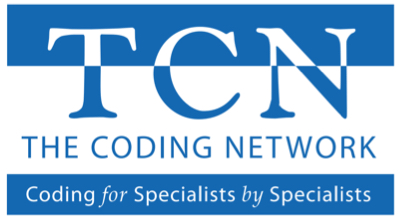Challenges in Making Your Workforce Remote
Challenges in Making Your Workforce Remote
During this health crisis federal, state and local agencies as well as private industry have been encouraging their workforce to work remotely. While this well intentioned initiative is directed at promoting social distancing and limiting exposure to infected individuals, there are some problems with implementing this approach in a hasty fashion.
In the world of medical coding, the regulatory landscape as governed by HIPAA and HITECH puts additional hurdles up that without a thoughtful approach could lead organizations to make decisions that lead to non-compliance and possible liability exposure. Some of the challenges to navigate include, but are not limited to the following:
Hardware Considerations
- Do they have a computer to work on?
- Does their computer have the requisite security safeguards to ensure compliance?
- Encrypted? Anti-virus? Stringent password protection? Up to date software?
Connectivity Issues
- Do they have a secure wireless network to connect to that has been tested and verified by your organization?
- Do they have a secure connection to your EMR to perform their work?
- Do they have access to the resources needed to complete their work like encoders and code books?
- Do they have HIPAA secure email access on their computer?
Remote Management Challenges
- Are there readily available IT resources for them in the event that assistance is needed or a security incident occurs?
- Are there established workflow processes in place for how they access their and complete their work?
- Are they acclimated to a work at home setting, knowing how to utilize their time effectively?
- How will you manage their performance while they are working remotely?
- Do you have tracking mechanisms in place to monitor their hours and/or productivity?
- Are they working in compliance with federal, state and local employment law?
- Are they taking appropriate work breaks? How do you validate this?
- Are there procedures in place for the management and deletion of PHI on the computer?
- Have they been trained on how to deal with security incidents as they arise?
- Has there been phishing training to prevent compromising their workstation?
- Does your organization have the ability to create an electronic audit trail of coders’ access to your EMRs?
- Are auditing measures established to validate that all security protocols and handling of PHI are in compliance?
- Are there established guidelines for violations of security policy?
As you can tell there are a host of challenges with making a workforce remote. If these considerations have not all been previously addressed your organization may find itself subject to liability exposure, compromised data and a reduction in productivity.
The Coding Network is an entirely virtual company that has been able to finely tune our remote coding services offerings over the course of our 25+ years in business. We validate our security measures annually with the help of 3rd party HIPAA compliance experts and our team of coders is fully acclimated to rendering services remotely.
If in this time of uncertainty your organization finds the need to move their workforce to a home based model, please bear in mind the risks and challenges with doing so. Should you need additional coding resources, The Coding Network is here to help. Please feel free to contact us and see how we can assist.

Latest Blog Posts:
Need Professional Medical Coding Assistance: Why Using Your Doctors To Code Is Not Free
In today’s fast-paced healthcare environment, efficiency and accuracy are non-negotiable. Every medical practice, hospital, and healthcare system strives to optimize revenue, ensure compliance, and deliver exceptional patient care. One area that often flies under the [...]
Medical Coding Compliance: The Good, the Bad, and the Ugly
In today's complex healthcare landscape, maintaining coding compliance is more crucial than ever. Recent developments from the Department of Justice (DOJ), including the launch of the Corporate Whistleblower Awards Pilot Program (CWAPP), have further emphasized [...]
The DOJ’s New Whistleblower Program: A Vital Step for Medical Coding Compliance
On August 1, 2024, the U.S. Department of Justice (DOJ) launched its Corporate Whistleblower Awards Pilot Program. This initiative is a significant development in the DOJ's efforts to uncover corporate misconduct, particularly in areas not [...]
Coding Compliance Audits: Uncovering Deficiencies and Solutions
In an era where healthcare systems are intricately tied to digital platforms, meticulous coding accuracy cannot be a mere afterthought; it is an absolute necessity. Often overlooked, coding errors are the silent killers of compliance [...]




